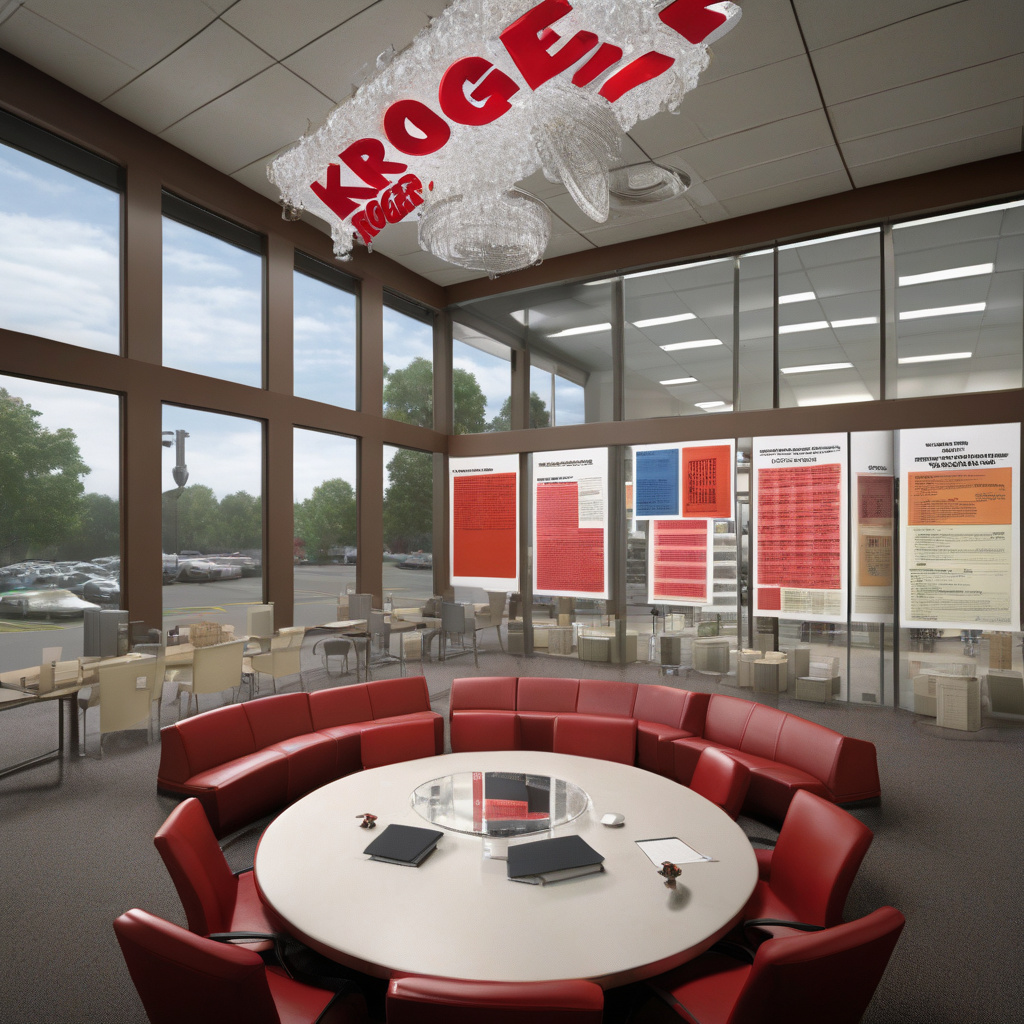Kroger Spent $1B on Failed Bid to Merge With Albertsons
In the ever-competitive landscape of the retail industry, mergers and acquisitions are often seen as strategic moves to gain a competitive edge. However, not all mergers are successful, as evidenced by Kroger’s recent failed bid to merge with Albertsons. According to a regulatory filing, Kroger spent a staggering $1 billion on expenses related to the failed merger, shedding light on the high stakes and costs involved in such endeavors.
The retail industry is no stranger to mergers and acquisitions, with companies constantly seeking ways to expand their market share, cut costs, or enter new markets. In the case of Kroger and Albertsons, the proposed merger was touted as a way to create a formidable force in the grocery sector, with a combined revenue that could rival that of industry giants like Walmart and Amazon.
However, despite the initial optimism surrounding the merger, the deal eventually fell through, leaving Kroger with a hefty bill to foot. The $1 billion spent on expenses related to the failed merger is a stark reminder of the risks involved in such high-profile deals. From legal fees to advisory costs, the expenses incurred by Kroger highlight the complex and costly nature of mergers and acquisitions.
While the failed merger may have been a setback for Kroger, it also serves as a valuable lesson for other companies looking to pursue similar deals. Mergers and acquisitions are not without risks, and careful consideration must be given to factors such as regulatory approvals, cultural fit, and potential synergies. In the case of Kroger and Albertsons, the two companies were ultimately unable to overcome these challenges, leading to the demise of the proposed merger.
Despite the failed bid, Kroger remains a major player in the retail industry, with a strong presence in the grocery sector. The company’s decision to pursue the merger with Albertsons was undoubtedly driven by a desire to strengthen its competitive position and drive growth. While the outcome may not have been what Kroger had hoped for, the experience gained from the failed bid could prove invaluable in shaping the company’s future strategies.
As the retail industry continues to evolve, mergers and acquisitions are likely to remain a key strategy for companies looking to stay ahead of the competition. While the failed bid to merge with Albertsons may have been a costly misstep for Kroger, it is also a reminder of the unpredictable nature of such deals. In the fast-paced world of retail, companies must be prepared to adapt and learn from both their successes and failures in order to thrive in an increasingly competitive market.
Ultimately, the $1 billion spent on the failed merger with Albertsons serves as a cautionary tale for companies considering similar deals. While the allure of creating a retail powerhouse may be strong, the risks and costs involved in mergers and acquisitions should not be underestimated. For Kroger, the failed bid with Albertsons may have been a costly endeavor, but it is also a valuable lesson in the complex and challenging world of retail mergers.
#Kroger, #Albertsons, #mergersandacquisitions, #retailindustry, #supermarketcompetition
